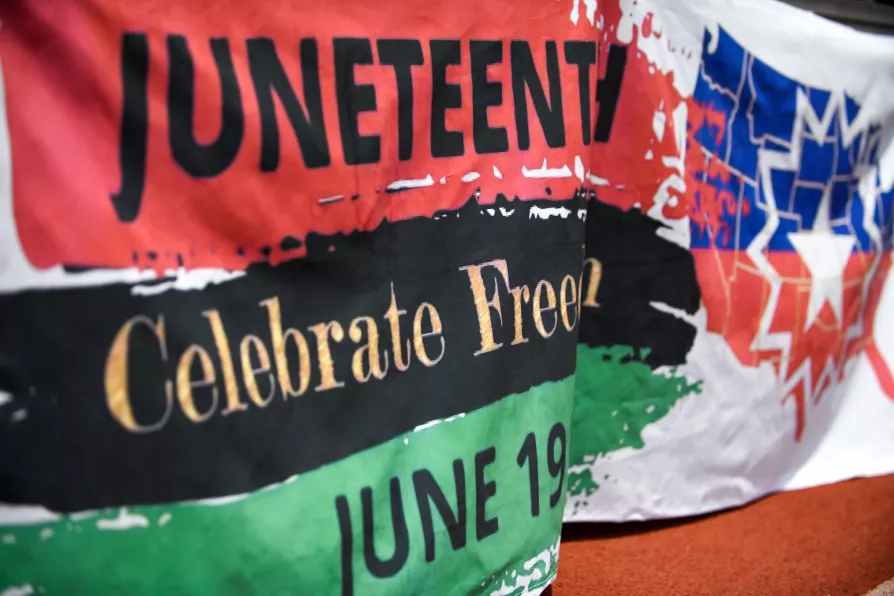BEN CHACKO reports on fears at TUC Congress that the provisions in the legislation are liable to be watered down even further
The origins of Juneteenth
LUKE DANIELS recalls the origin of the celebrations, as the end of the US civil war in 1865 saw the Emancipation Proclamation finally brought into effect and slaves were granted their freedom

 [USAG Humphries/Creative Commons]
[USAG Humphries/Creative Commons] AS AMERICANS celebrate Juneteenth, it gives occasion to also reflect on the reasons and history of the celebration.
After the Northern US states defeated the slave-owning South in the US civil war, enslaved Africans in Galveston, Texas, were told by Major General Gordon Granger on June 19 1865, that they were now free.
This was some two-and-a-half years after president Abraham Lincoln issued the Emancipation Proclamation in 1863.
More from this author

As Black History Month brings renewed focus on the fight against racial inequality, LUKE DANIELS argues that understanding slavery’s legacy and demanding financial reparations are key to defeating modern racism
Working with men who carry out domestic violence, LUKE DANIELS sounds the alarm on the spike in cases as couples are forced indoors due to the pandemic
Similar stories

On the anniversary of the implementation of the 1833 Slavery Abolition Act, ROGER McKENZIE warns that the legacy of black enslavement still looms in the Caribbean and beyond

PETER LAZENBY reports on how trade unionists in Manchester are to celebrate the role of the city’s cotton industry workers in the fight for the abolition of slavery in the US civil war

ROGER McKENZIE recommends an exhibition that explores the colonial plunder hidden in the collection, and the questions it raises

As Black History Month brings renewed focus on the fight against racial inequality, LUKE DANIELS argues that understanding slavery’s legacy and demanding financial reparations are key to defeating modern racism










